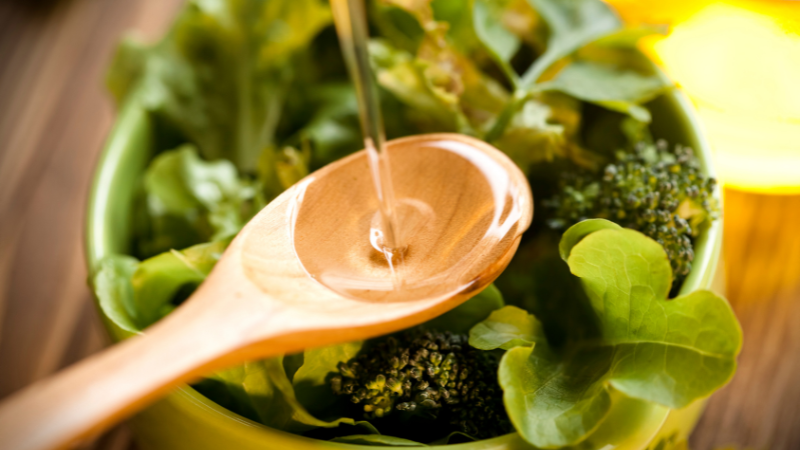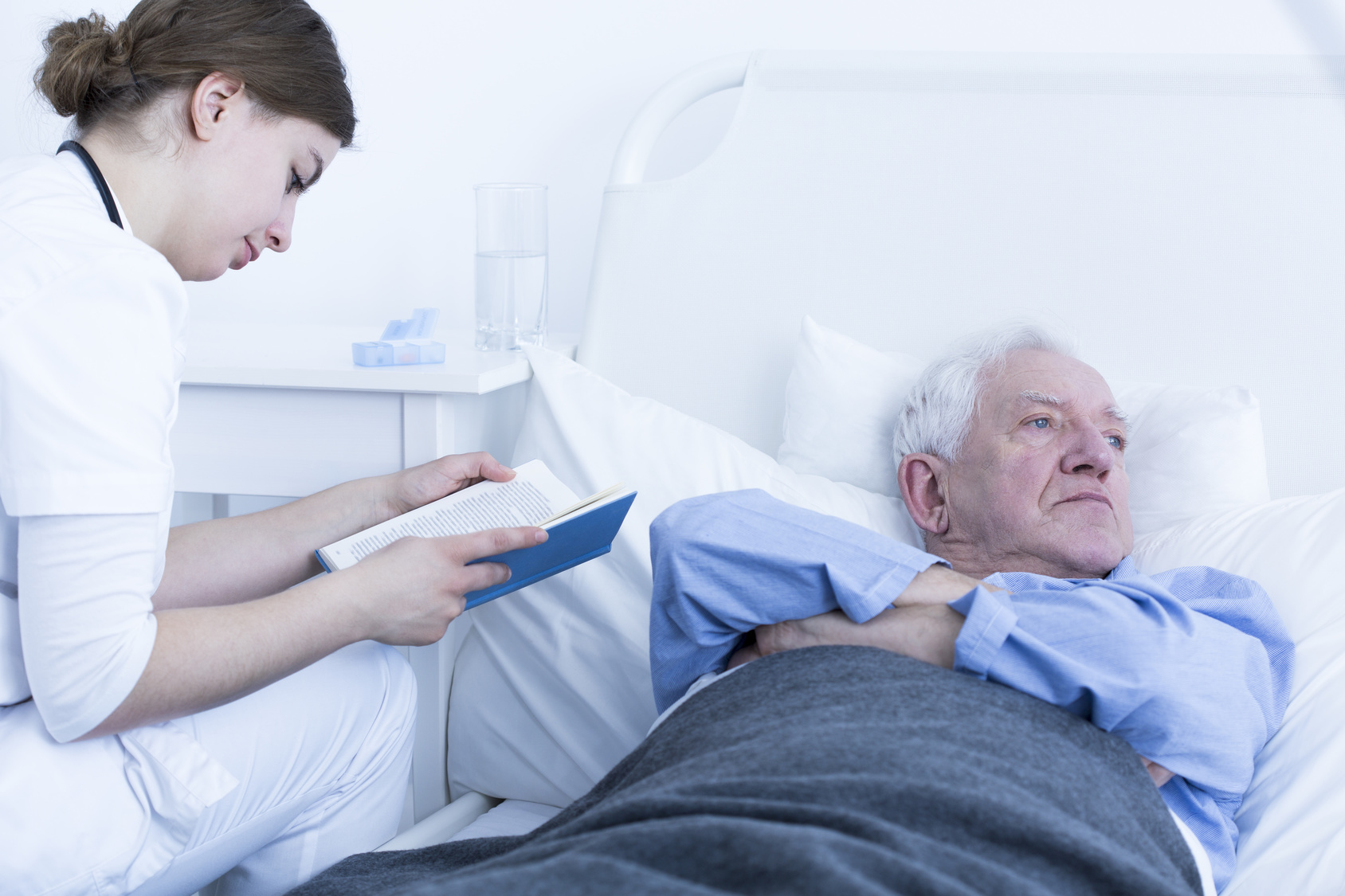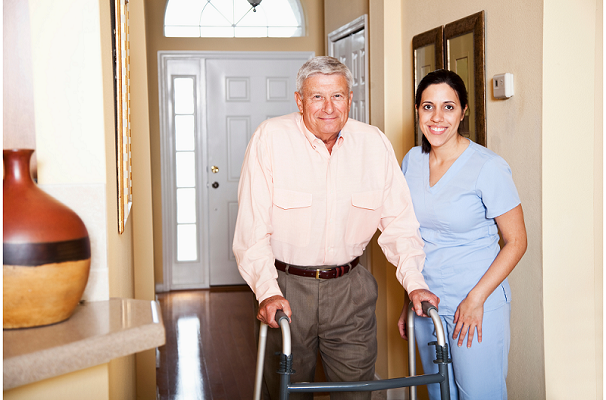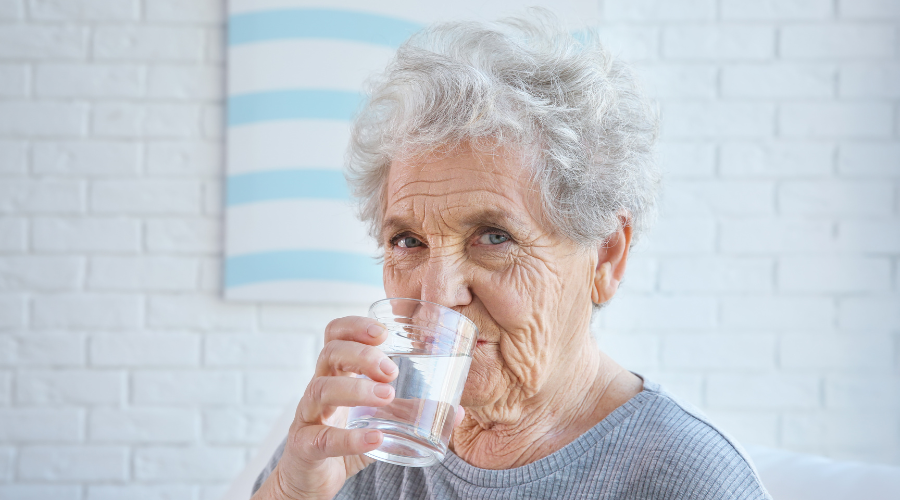
At times, seniors can experience a feeling of dryness in their mouth due to being upset or stressed. However, if they experience dryness frequently, they may be suffering from dry mouth, a condition that may cause major health issues.
This condition, called dry mouth or xerostomia, happens because salivary glands in the mouth are not creating enough saliva to keep it wet. It may also be caused by medications as there are many that list this as a side effect. Usually, it is the urinary incontinence drugs that cause dry mouth, but there are medications that are prescribed for other conditions such as for depression, high blood pressure, and anti-anxiety that may cause it as well.
Causes Of Dry Mouth
According to the American Dental Association, 25 percent of men and 33 percent of women over the age of 65 suffer from dry mouth. This condition is seen a lot in older adults as they take more medications than younger people. It also may be due to dehydration as older adults have a blunted sense of thirst as they age.
Keep in mind that dry mouth may also be due to an underlying condition that the older adults may have such as diabetes, hepatitis C, HIV/AIDS, Sjögren’s syndrome etc. Dry mouth can also be caused by treatments such as radiation for cancer.
Dry mouth caused by medications can cause health issues in older adults. As saliva is needed to protect our mouth and teeth as well as keep a mineral balance, wash away food and bacteria, and dilute acid. Without it, bacteria will attack teeth causing decay and infection in the gums. When there is not enough saliva, it can cause bad breath, loss of taste, soft tissue problems, and difficulty swallowing or speaking.
How To Relieve Dry Mouth
If you or a senior loved one is affected by dry mouth, there many things you can do for relief.
Here are some steps you can take to stop dry mouth:
- Speak to your doctor about medications causing dry mouth:
If your loved one is suffering from dry mouth due to the prescribed medications they are taking, you should speak to their physician to change the dosage or switch medications to help relieve the dry mouth issue.
- Drink more liquid:
It is important for those affected to take small sips of fluoridated water or to suck on ice chips to help moisturize their mouth. Seniors should also make sure to drink at least eight to twelve glasses of water daily to keep themselves hydrated. For seniors who have issues with swallowing, they should drink water with meals to help get food down.
- Chew gum or sugar-free candy:
For quick relief, seniors can chew sugar-free gum or candy to keep producing saliva. Look for products that use xylitol to sweeten their products as they may help against tooth decay.
- Avoid caffeine, alcohol, and sugary drinks:
Seniors with dry mouth should avoid caffeine, alcohol, and sugary drinks as they can dehydrate and make the symptoms worse. If your loved ones use mouthwash, make sure they use a brand with fluoride and not alcohol as alcohol can dry out the mouth. Seniors should also avoid drinks that are sugary such as soda and juice as they can increase tooth decay.
- Try over-the-counter medications:
There are many over the counter medications that can help with dry mouth. Some of these include XyliMelts, Salese, and Thayers. Try out the different brands and see what works best for your loved ones. They can also use a saliva substitute such as Biotène or Act. There are different kinds that include oral sprays, rinses, gels, and tablets. It is best to ask their doctor before trying over the counter solutions.
- Use a cool mist humidifier:
Using a cool mist humidifier in their home will add moisture to the air and help lessen the mouth dryness while they are sleeping.
- Drink green tea:
Drinking green tea increases saliva which will relieve dry mouth. Use green tea that is not caffeinated. For seniors who are not tea drinkers, they can take a green-tea lozenge which will help increase saliva in the mouth.
- Try acupuncture:
This type of treatment will help activate the part of the brain that creates saliva.
- Use the right toothpaste:
Always make sure your senior loved ones use toothpaste with fluoride and avoid those that contain sodium lauryl sulfate as they may further irritate the mouth and gums. You can also ask a dentist if it would be beneficial for your loved ones to use a prescription-strength toothpaste with extra fluoride to help dry mouth.
- Have dentist check-ups regularly:
Seniors should brush and floss their teeth regularly as well as visit their dentist at least twice per year. To make the teeth stronger, the dentist may have to use fluoride trays or apply a fluoride varnish. For severe cases of dry mouth, seniors may be prescribed a saliva-stimulating pilocarpine hydrochloride (Salagen) or cevimeline hydrochloride (Evoxac).
Even with all these options of treatment for dry mouth, you should always consult a physician and dentist before trying any new treatments. This is especially true for seniors have underlying medical conditions as it will help avoid any complications with their health.
Senior Care from Assisting Hands
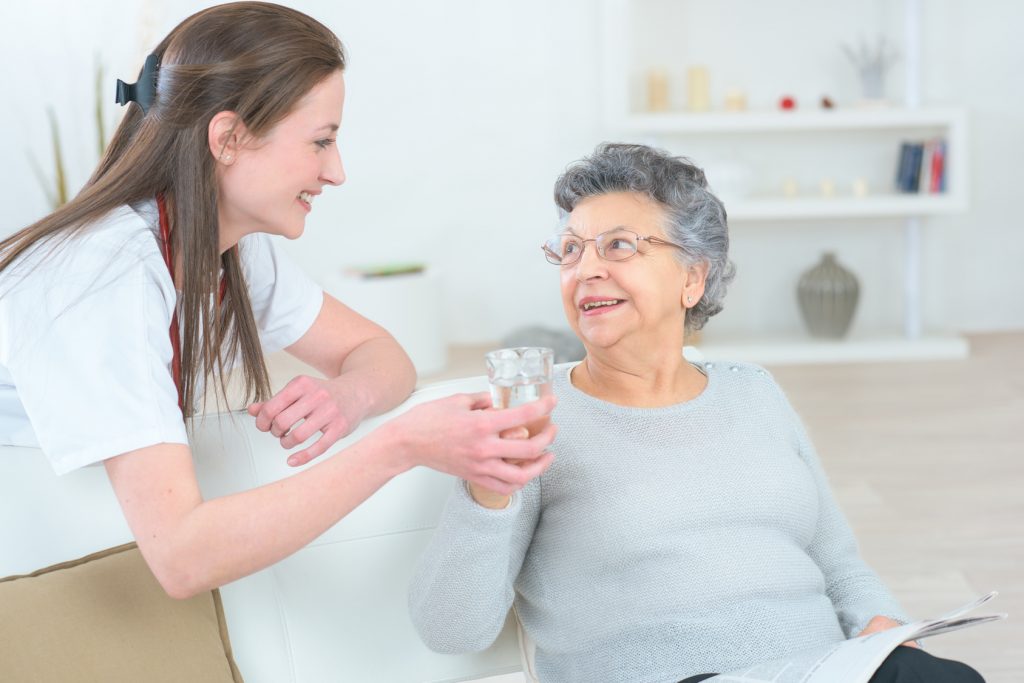
Are you in need of senior care for your loved one? Assisting Hands Home Care can help. We offer senior care and non-medical home health care to seniors in Lombard, Glendale Heights, Villa Park, Itasca, Elmhurst, Bensenville, Addison, IL and the surrounding areas . Our highly skilled caregivers will provide exceptional care for your loved one right in their home. Call us today at (630) 526-6522 to learn more about our senior care and non-medical home health care services and how they can benefit your senior loved ones.






